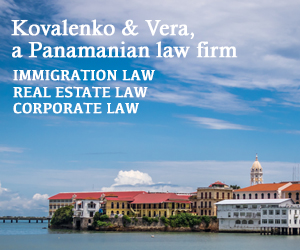Moving to Panama
Last updated on Mar 30, 2024
Summary: Expats and digital nomads move to Panama for its low cost of living, warm climate, and friendly people. Additionally, Panama offers a variety of activities and attractions, making it an attractive destination for those looking to explore a new culture. People can find a place to live in Panama by searching online for rental properties, or by contacting a real estate agent. The most popular cities for expats and digital nomads in Panama are Panama City, Boquete, and Bocas del Toro. These cities offer a variety of amenities, activities, and attractions, making them ideal for those looking to experience the culture and lifestyle of Panama.
What do I need to know before moving to Panama?
When we asked people what advice they would give someone preparing to move to Panama, they said:
"The best thing I can say about my apt. is that I know where my leaks are. 7 or 8 months of rainy season - sunny mornings, you get out, do your errands early, then afternoon showers. It took me two years to know that Windex kills ants. Silicone seal around EVERYthing. Neighborhood - we got lucky. We chose the apt., and were clueless about the neighborhood, except the info the broker was pushing," commented one expat who made the move to Panama City.
Answer Question & View More Answers
How do I find a place to live in Panama?
Please login to continue reading this article.
Not a member? Join Today (it's free).
About the Author
 Joshua Wood, LPC joined Expat Exchange in 2000 and serves as one of its Co-Presidents. He is also one of the Founders of Digital Nomad Exchange. Prior to Expat Exchange, Joshua worked for NBC Cable (MSNBC and CNBC
Primetime). Joshua has a BA from Syracuse and a Master's in Clinical and Counseling Psychology from Fairleigh Dickinson University. Mr. Wood is also a licensed counselor and psychotherapist.
Joshua Wood, LPC joined Expat Exchange in 2000 and serves as one of its Co-Presidents. He is also one of the Founders of Digital Nomad Exchange. Prior to Expat Exchange, Joshua worked for NBC Cable (MSNBC and CNBC
Primetime). Joshua has a BA from Syracuse and a Master's in Clinical and Counseling Psychology from Fairleigh Dickinson University. Mr. Wood is also a licensed counselor and psychotherapist.
Some of Joshua's articles include Pros and Cons of Living in Portugal, 10 Best Places to Live in Ireland and Pros and Cons of Living in Uruguay. Connect with Joshua on LinkedIn.
Other Questions:
- What should I pack when moving to Panama?
- Where should I setup a bank account in Panama?
- Will I be able to find a job in Panama?
- What is life like as an expat in your area?
- What do expats in Panama appreciate most about the local culture?
- What do expats find most challenging?
- Is there a lot of crime in Panama?
- Is there a lot of diversity? Are people in Panama accepting of differences?
- What are the schools in Panama like?
- How are healthcare services in Panama?
- What are medical services in Panama like?
- Are healthcare and health insurance expensive in Panama?
- What are emergency services like in Panama?
- Will I need to travel to see a specialist?
- Are common prescription medications available in Panama?
- How are local medical facilities in Panama?
- As a foreigner living in Panama, will I have access to public healthcare? What is it like?
- What have your experiences during the pandemic with the local healthcare system been like?

 Panama
Panama


